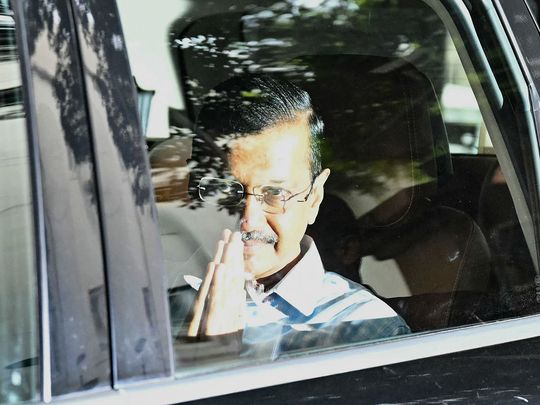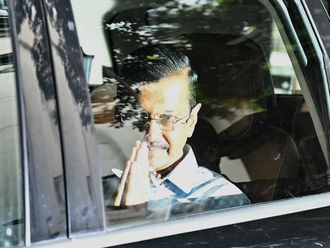
The Delhi state assembly election is now about two months away. Many voters are undecided about who they might vote for. The campaign has just about begun. By mid-January, we should have a clear sense.
The ruling Aam Aadmi Party (AAP) is putting up a spirited fight despite its top leadership having spent much of last year in jail. Driving through Delhi’s never-ending flyovers and roundabouts, you might be late to believe that Arvind Kejriwal is still the chief minister of the city-state. The Supreme Court’s bail conditions made it impossible for him to continue as chief minister.
If the AAP wins, it is not clear how it will be feasible for Arvind Kejriwal to become chief minister. Among the many questions some voters might want to raise is why they want Atishi Singh to continue as chief minister.
In August last year, a new central government law, popularly called the Delhi Services Bill, gave finality to the tussle between the central government and the Delhi state government for control of the Delhi bureaucracy. The law qualified a Supreme Court judgement that said that the Delhi government had the right to make laws over services.
In effect, the Delhi state bureaucracy is answerable to the Lt. Governor of Delhi and to the central government, thus making the elected state government a ceremonial affair.
Why nothing works
This means that the AAP can’t actually get much done in Delhi. The national capital has never had full statehood, but the tussle for power between Centre and the State has now brought governance to a standstill. From desilting the drains to cleaning up the air to making sure that public health clinics for the poor are restocked with basic supplies, nothing works.
The AAP government has announced a populist scheme to give cash transfers to women. But unlike other states, they have not been able to carry out the cash transfers just before the election, because the bureaucracy won’t let them do it.
The AAP government does not make much song and dance about how its hands are tied because then voters might say, too bad for you, but we need to get our work done. By now, everyone understands. How does the government solve any voter’s problems if it doesn’t control the bureaucracy? And if you can’t get any work done, people can understand that you are only a ceremonial figurehead.
Growing anti-incumbency
There are good reasons why the AAP could still win Delhi. The city’s poor see the AAP as their own party. If it was free electricity five years ago that won them the election in 2020, this time, free bus travel for women is very popular. It saves quite some household money.
The AAP has also tried to address the perception that it is weak by poaching strong candidates from the Congress and elsewhere. Its campaign so far seems to be more positive than the BJP’s, focusing less on attacking the BJP, and more on talking about governance and welfare.
The BJP’s campaign is more focused on asking people to recognise the crisis Delhi is in, and change the government in the hope for better days. This could work because people can see the growing governance deficit in Delhi, but it may not work because the BJP still does not have a suitable chief ministerial face, and so far, its campaign is doing a poor job of showing people a positive vision for the next five years.
Yet there are many signs that this election may not be a cakewalk for the AAP like the previous two. The biggest red flag is that there seems to be no sympathy for the AAP leadership about their incarceration. This was made clear in the Lok Sabha election results when the AAP, despite an alliance with the Congress, could barely make any dent in the BJP’s vote share in the 7 seats Delhi has. The BJP won all seven.
Lose your chains
It has been the norm for long that the BJP sweeps the Lok Sabha and the AAP sweeps the Vidhan Sabha. In both elections, the Delhi voter gives opposite landslide verdicts. Can the BJP break this habit?
For its own good, a tired Aam Aadmi Party needs to lose Delhi. Another five years of non-governance will actually be detrimental to the party’s long-term prospects nationally. Losing Delhi will make the AAP a better opposition in the city-state than the BJP and the Congress combined.
The BJP anyway runs Delhi now and has complete control of the bureaucracy. The AAP is actually chained and diminished by Delhi’s half-state status. Losing Delhi might actually make it free of a burden, giving Kejriwal & Co. a clean new slate to reimagine their politics.




_resources1_16a45059ca3_small.jpg)






